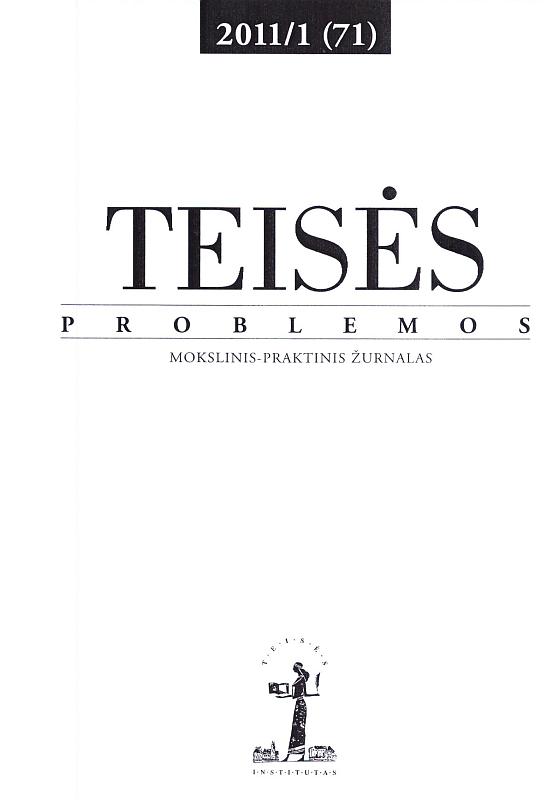Nusikaltimų prevencija Lietuvoje: perėjimas nuo intuityvios prie įrodymais grindžiamos
Crime Prevention in Lithuania: from "Sensual" Crime Prevention to Evidence-Based Crime Prevention
Author(s): Svetlana JustickajaSubject(s): Criminology
Published by: Lietuvos teisės institutas
Summary/Abstract: “Efficiency revolution” which occurred at the end of the last century radically changed view on efficiency of crime prevention. It refuted the presumption that any crime prevention action is produces intended changes in criminality. This presupposition was replaced with the opposite one: no crime prevention is efficient unless the opposite is proven. This means that the efficiency of any prevention program or action must be supported by evidences (evidence-based crime prevention). The evidence-based crime prevention is the mainstream approach in developed countries (USA, Canada and G. Britain). Efficiency evidences must be provided each time when financial or any other support is sought. This provided an opportunity to improve crime prevention, to make it more efficient, to change situation in crime prevention. Quite different situation is observed in developing countries (also in Lithuania). The transition from traditional, obscene crime prevention paradigm to the modern one proceeds in a highly conflicting way (Akpokodje, Bowles, Tigere, 2002). Despite huge destructive effect of criminality upon economy and social life in these countries the new approach to crime prevention meets great resistance. The aims of this report are: To assess the rate of transition to the modern crime prevention in Lithuania; to reveal factors behind the resistance to this transition. To answer the first question we investigated 132 crime prevention projects designed in Lithuania. In every project ways in which its efficiency is ensured have been studied. To answer the second one Lithuanian legislature regulating the design and assessment of crime prevention project and guiding literature on crime prevention have been reviewed. A broad pull of crime prevention actors were questioned. The study showed that Lithuania is quite similar to other developing country as for its situation in crime prevention. It was shown that resistance to the change of paradigm in crime prevention rises from all three sources: legislation, instruction of people involved in crime prevention and their traditional ideas on prerequisites of successful crime prevention.
Journal: Teisės problemos
- Issue Year: 2011
- Issue No: 71 (1)
- Page Range: 81-108
- Page Count: 28
- Language: Lithuanian

